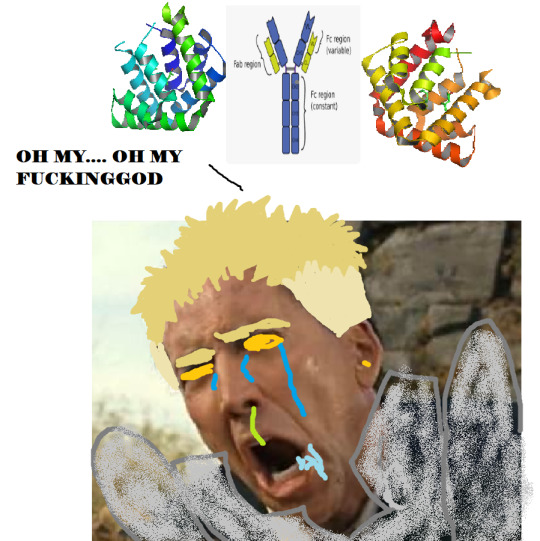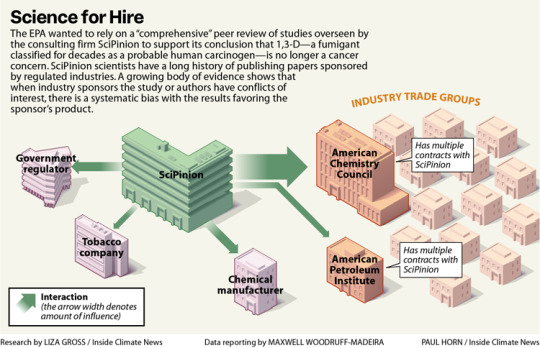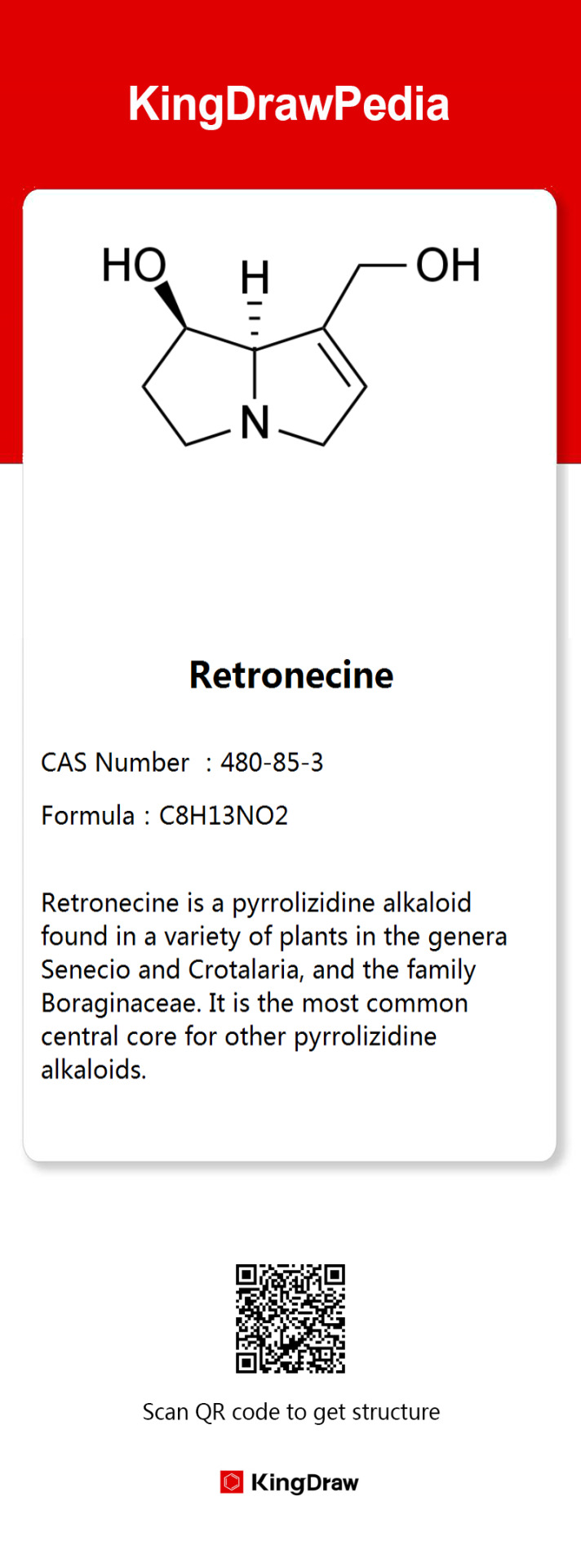#genotoxic
Explore tagged Tumblr posts
Text
Hyperinflation of the rare
by Dr.Harald Wiesendanger– Klartext What the mainstream media is hiding “Rare”: that sounds like a negligible number. However, at least in the healthcare system, this impression is very misleading. Even if each “rare disease” affects no more than 0.05% of the population, its diversity has exploded recently: there are now over 17,000. And more and more people are affected: four million in…
#Angelman syndrome#DMD#Duchenne muscular dystrophy#Fields disease#Flynn-Aird syndrome#Foundation Auswege#genotoxic#Harald Wiesendanger#harlequin ichthyosis#maple syrup urine disease#MSUD#orphan drugs#rare disease#Rare Disease Day#rare diseases#retinitis pigmentosa#ribose-5-phosphate isomerase deficiency#tuberous sclerosis#Werner syndrome
1 note
·
View note
Text



#dungeon meshi#delicious in dungeon#dun meshi#laios dungeon meshi#dunmeshi laios#izutsumi#anime#anime and manga#anime fanart#proteins#protein Fel d 1#chicken#genotoxicity#egg yolk#anti-Fel d 1 specific IgY (AFD1)#funny anime#senshi#dungeon food
33 notes
·
View notes
Text
lulu is good and i might still use it sometime but honestly basil is sweet too
#if i ever was gonna post any of my.........planty smut#well i'd have to. obviously. use basil#what if i make up timelord hrt and i make THAT planty#might go play with that actually#im on the wikipedia page for estragole#a thing in basil. not the thing that makes it smell i think just. another thing it has a lot of#'suspected to be carcinogenic and genotoxic' excellent#yaz: you dont have stds do you#doctor: no but i will give you cancer and mutate your genes#hang on why is there a lot of a carcinogenic thing in basil#should we be worried abt that#or is that like fine bc its one of the things that.......dissolves in the air. vaporises?#so it IS the thing that gives it the basil smell maybe. one of them#just smells toxic but its fine#fhkjghfkjgh
4 notes
·
View notes
Text
i was tryna buy myself some drinkies cos im bored of drinking water and absolutely fucking everything has sucralose (GENOTOXIC) in it
#like this study only came out/hit the news last week?? so nothing is being done to ban it yet#but what that shit can do to your cells is insane.#if youre wondering what genotoxic means it's pretty self explanatory. it is toxic to your genes#it will cause your genes to lose integrity. means cell replication is fucked to all hell. it apparently also causes leaky cells which is#also horrifying. its this idea that the highly targeted distribution of proteins to cells is completely disrupted so anything goes anywhere#and when you think about the fact that the gut processes include converting from ammonia (toxic) to urea (not toxic in low concs)#but even the non-low cal drinkies have sucralose in them. :/ guess im sticking to water until this shit is sorted
9 notes
·
View notes
Text
3 notes
·
View notes
Text

Unravel the complexities of nitrosamine genotoxicity with Eurofins Advinus. To provide you with a deeper understanding of potential risks, we offer a comprehensive package that includes - 🧬 Genetic toxicology studies 🧬 Comet assay 🧬 PigA mutation assay Contact us to discuss your project requirements - [email protected]
0 notes
Text
Abstract In this study, dose-dependent effects of lunularic acid (LA) on some physiological, cytogenetic, biochemical and anatomical parameters were investigated in Allium cepa L. bulbs. For this purpose, physiological parameters to be analyzed experimentally: germination percentage, root length, root number and fresh weight; cytogenetic parameters: micronucleus (MN) frequency, chromosomal aberrations (CAs) and mitotic index (MI); biochemical parameters were determined as catalase (CAT), superoxide dismutase (SOD) activities, malondialdehyde (MDA) level and free proline (Pr) content. In addition, cross-sections were taken from the roots and structural changes in meristem cells were examined. Onion bulbs were divided into four groups as one control and three treatments. The bulbs of the control group were kept in cuvettes containing tap water and the bulbs of the treatment group were kept in cuvettes containing 1, 5 and 10 mM LA for 7 days. LA administrations caused a decrease in all investigated physiological parameter values, an increase in the frequency of MN and CAs, and reduce in MI compared to control group. In addition, LA application caused dose-related increases in CAT and SOD activities and MDA and Pr levels compared to control group. LA application promoted CAs such as sticky chromosome, spindle fiber damage, vagrant chromosome, reverse polarization in root meristem cells. After all LA applications, root anatomical structure changes such as epidermis cell deformations, flattened cell nucleus and unclear transmission tissue were observed and it was determined that these changes reached a maximum at 10 mM LA dose. As a result, it has been understood that high doses of LA promote multi-directional toxicity and the Allium test is a very reliable test in determining this toxicity.
#Alliumcepa#antioxidantdefensesystem#bulbgermination#genotoxicity#Lunularicacid#meristematiccelldamage#Allium#antioxidant#germination
0 notes
Text
Titanium dioxide, the most widely used whitening pigment in the world, has been linked to adverse health effects, particularly genotoxicity and intestinal inflammation. It is applied as a food coloring and a whitening agent to chewing gum, cakes, candies, breads and ice cream.
by U.S. Right to Know
January 9, 2025
10 notes
·
View notes
Text
21 notes
·
View notes
Text
According to a new study, a chemical that forms when humans digest a certain type of "widely used" sweetener is "genotoxic," meaning it damages DNA.
That chemical is also said to be found in the sweetener itself in trace amounts and researchers claim "the finding raises questions about how the sweetener may contribute to health problems."
North Carolina State University shared the findings of its new study in a news release. It names "sucralose," said to be the most widely used artificial sweetener in the United States, as the "issue."
This shit is in most diet drinks by the way...
122 notes
·
View notes
Text
Note that the studies that were released by companies affiliated with polluters happened in 2019, during the trump administration.

Excerpt from this story from Inside Climate News:
On a Southern California spring morning in 1973, a tanker truck driver jackknifed his rig and dumped the agricultural fumigant he was transporting onto a city street. A Los Angeles Fire Department emergency response team spent four hours cleaning up the chemical, 1,3-dichloropropene, or 1,3-D, a fumigant sold as Telone that farmers use to kill nematodes and other soil-dwelling organisms before planting.
Seven years after the spill, two emergency responders developed the same rare, aggressive blood cancer—histiocytic lymphoma—and died within two months of each other. In 1975, a farmer who’d accidentally exposed himself to 1,3-D repeatedly through a broken hose was diagnosed with another blood cancer, leukemia, and died the next year.
Within a decade of the men’s deaths, described as case studies in JAMA Internal Medicine, the National Toxicology Program, or NTP, reported “clear evidence” that 1,3-D causes cancer in both rats and mice. The finding led the U.S. Environmental Protection Agency to classify the chemical as “likely to be carcinogenic to humans” the same year, 1985. So it wasn’t a surprise when researchers at the University of California, Los Angeles reported in 2003 that Californians who’d lived at least two decades in areas with the highest applications of 1,3-D faced a heightened risk of dying from pancreatic cancer.
Yet EPA’s Office of Pesticide Programs’ Cancer Assessment Review Committee, or CARC, concluded in 2019 that 1,3-D—originally embraced by tobacco companies for its unparalleled ability to kill anything in soil that might harm their plants—isn’t likely to cause cancer after all.
In doing so, EPA, whose mission is to protect human health and the environment, rejected the human evidence, calling the UCLA study “low quality.” It also dismissed the authoritative NTP study and studies in lab animals that documented 1,3-D’s ability to damage DNA, a quintessential hallmark of cancer.
Instead, EPA’s CARC relied on studies provided by Dow AgroSciences (now called Corteva), the primary manufacturer of 1,3-D, and proposed a review of evidence linking the fumigant to cancer by SciPinion, a consulting firm hired by Dow, as an external peer review of its work. The decision to entrust external review to a Dow contractor has drawn repeated criticism, including from the agency’s watchdog, the Office of Inspector General, or OIG.
“During EPA’s search of the open literature, a comprehensive third-party peer review of the cancer weight-of-evidence assessment that considered toxicokinetics, genotoxicity and carcinogenicity data for 1,3-D was conducted and published in 2020 by SciPinion,” said agency spokesperson Timothy Carroll. EPA argued that the SciPinion review satisfied the criteria for an external review, Carroll said, and that another panel would have arrived at the same conclusion, given the specialized expertise required.
The OIG had recommended EPA conduct an external peer review of its 1,3-D cancer risk assessment in a 2022 report that outlined several problems with the agency’s process. An external review, the OIG said, requires “independence from the regulated business,” again noting the deficiency in a new report released in early August.
The scientists who run SciPinion have long consulted for manufacturers of harmful products, often publishing studies that deploy computer models to question the need for more protective health standards.
4 notes
·
View notes
Text
youtube
I feel bad for americans.....at least one of those dyes is a known carcinogen (yellow 6 gives rats kidney tumors, yellow 5 is full of benzine and has been found to be genotoxic) and others have known negative health impacts (eg red 40, blue 1).......but at least its a daylgo rainbow, looks better
2 notes
·
View notes
Text
maybe it's not just 'yaz will like me again' maybe it's Also "he was so hot" i wil like yaz again
anyway tonight in fucked up doctor/yaz thoughts (because there is no way i can spin this story that they won find a way to make it a little fucked up) (perhaps bc thats the nature of stories who knows):
what if 14 decides to transition bc of like,,,the doctors feelings for humans are more idolisation than anything else + regret over missed time and chances with yaz + desire to distance themself from their 10 self
#im just gonna add that to my list of reason from the first post bc its a little heartwrenching tbh#i loved you but i couldnt and now i can but not in that way#ough#anyway im having them cook up diy alien hormones in the attic#KEEP OUT sign on the door bc noxious fumes will knock out humans and probably do smth weird and genotoxic to them
42 notes
·
View notes
Text

Identify the micronuclei induction (genotoxicity) potential of your test item with Eurofins Advinus! Our experts use the FISH/ Kinetochore staining to assess micronucleus formation, which may be due to clastogenicity or aneugenicity. Schedule a meeting today! 📧 [email protected]
#safetyassessment#drugdevelopment#genotoxicity#micronucleusassay#OECD#eurofins#advinus#preclinicalcro
0 notes
Text
The chemistry behind The Greenbird Flower

The Greenbird Flower (Crotalaria cunninghamii), native to Australia, attracts pollinators with its bird-like green blooms. It contains toxic PAs—monocrotaline (MCT), Retrorsine, and Retronecine—which were once used medicinally but are now known for their hepatotoxic and genotoxic effects, prompting health and safety regulations.



#flower#chemistry#molecule#organicchemistry#dailychem#did u know#stemblr#amazing facts#australia#chemblr
2 notes
·
View notes